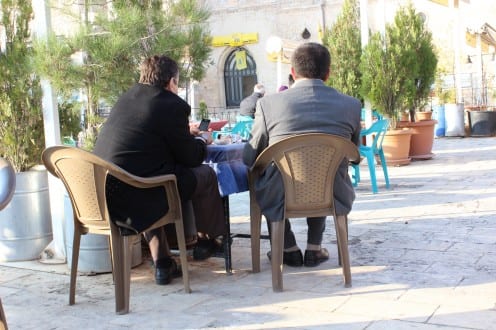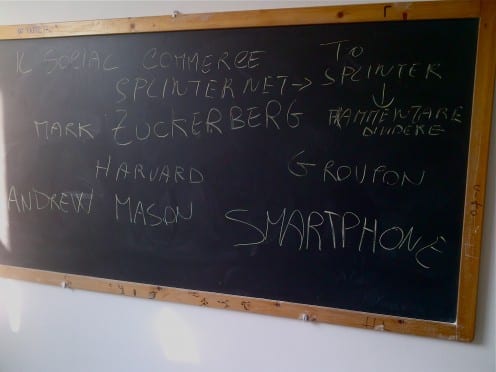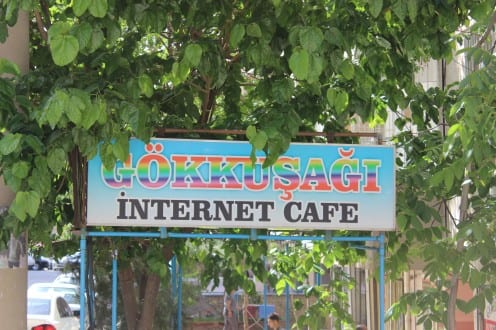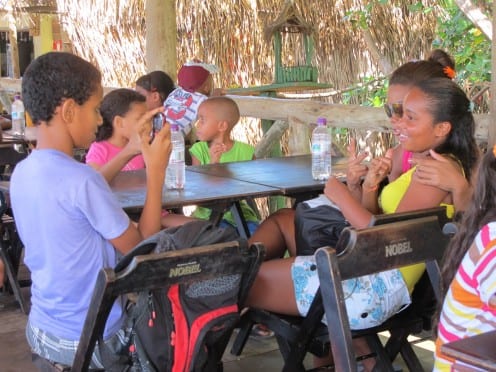The continuum of visibility
By Jolynna Sinanan, on 17 February 2014
If Facebook is a visual platform-one where people can show aspects of themselves through words in posts, or what was status updates or comments and in photos that they have taken themselves or photos taken of them in posts, uploads and albums, or share something made by someone else in memes, clips, audio and video-then we also have to think about how people engage with each other through visibility.
Since returning to field work in Trinidad last week, I have been continuing working with Dr Gabrielle Hosein at the University of the West Indies on spectacular politics, work which started when I documented the hunger strike of Dr Wayne Kublalsingh last year.
Now, we are thinking about how people engage with each other though the Facebook tools: Like, Comment, Post and Share. What can these things say about how social life plays out on Facebook? Trinidad is well versed and have a language for degrees of visibility. The most extreme, the spectacle, is played out for four days of the year, culminating on Carnival Tuesday. Playing Mas is about being the spectacle and being the show, ‘playing yourself’, externalising a true self that can’t be enacted the rest of the year, on the festival of disruption and inversion of the usual social order. The literature on Carnival speaks to how people come to exist through visibility, being seen and being in stage, whether or not one is being seen as themselves, or through a mask (Lovelace, 1979, Birth, 2008, Mason, 1998, Franco, 1998).
As Carnival has specific understandings within Trinidadian culture, the cultural understanding of the usage of Facebook is less about Facebook, than an enactment of a cultural world that is Trinidad (Miller, 2011, Miller and Sinanan, 2014). So what can ‘likes’, ‘comments’, ‘posts’ and ‘shares’ tell us about the degrees of visibility? The first very important factor to note is the research that is informing this pre-theorising is based in a small town. El Mirador has all the ideals and frustrations of small town life. It’s a town that is considered to hold ‘traditional’ family and community values and most people know each other or at least know of each other and each other’s families. El Mirador can be too social, where everybody knows everybody’s business.
We’re starting to ask people when and how they use ‘likes’, ‘comments’, ‘posts’ and ‘shares’ and we are finding there is a distinct correlation to ‘offline’ social life. ‘Like’ represents the benign sociality of the local idiom of ‘liming’, hanging around, gentle acknowledgement and visible presence, and the other end of the spectrum is ‘post’, which is really putting yourself out there, on show. The majority of posts are sharing of moods, what people are doing, where they have been, holidays, family events, parties etc, there is very little political comment or commentary. When asked when they would not engage with something someone has posted, that is when they ‘do nothing’, the majority respond around ‘TMI: too much information’- when people are too visible. ‘Sharing’ is directed to specific groups or individuals, there is less sharing on an individual’s wall, but more general sharing that would resonate with certain individuals or groups. ‘Commenting’ is more personal, it is one degree down from posting, people comment when they feel strongly about something: ‘if it affect me’.
If usage of Facebook is embedded in existing social relations and spaces, it is worth unpacking the nuances of what ‘posts’, ‘comments’, ‘shares’ and ‘likes’ connote. The hazards of becoming too visible, even through online engagement on Facebook invites controversy and invites attacks on the self, whereas gentle acknowledgement, hanging around and being present is, in this context, more socially acceptable.
References:
Birth, Kevin, 2008, Bacchanalian Sentiments: Musical Experiences and Political Counterpoints in Trinidad, Durham and London: Duke University Press
Franco, Pamela, 1998, ‘Dressing Up and Looking Good: Afro-Creole Female Maskers in Trinidad Carnival’, African Arts, Vol. 31, Iss. 2, pp. 62-67
Lovelace, Earl (1979), The Dragon Can’t Dance, London: Longman
Mason, Peter, 1998, Bacchanal! The Carnival Culture of Trinidad, London: Latin America Bureau (Research and Action) Ltd
Miller, Daniel (2011) Tales From Facebook, Cambridge: Polity
Miller, Daniel and Sinanan, Jolynna (2014) Webcam, Cambridge: Polity
 Close
Close














